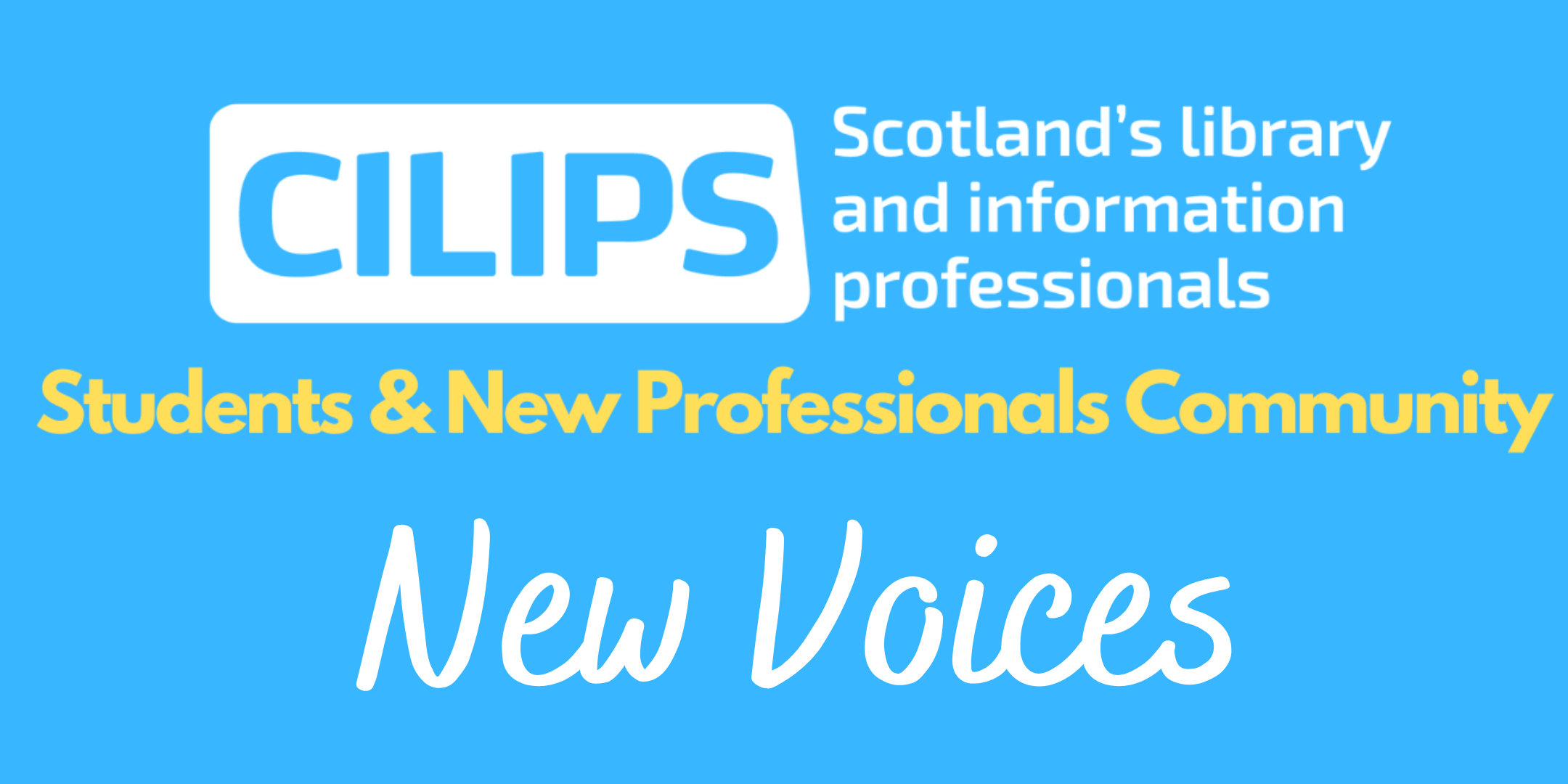New Voices RGU Student Series 2024 – Rebecca D’Arcy
Category: Blog, New Voices, RGU Student Series 2024

In the 2024 Student Series for the New Voices blog, CILIPS Students & New Professionals Community will be sharing the views of Robert Gordon University students from the MSc in Information and Library Studies.
With special thanks to Dr Konstantina Martzoukou, Teaching Excellence Fellow and Associate Professor, for organising these thought-provoking contributions.

Our blog today comes from Rebecca D’Arcy. Rebecca is a library assistant at Fingal Libraries, Dublin, Ireland. She is a passionate advocate for public libraries and all things book-related.
Demystifying the use of AI tools for older library users: Prevention not cure of ‘AI phobia’
Recently I asked ChatGPT a question that had been playing on my mind. Paraphrasing the playwright, Edward Albee, I typed the words ‘Who’s afraid of Artificial Intelligence?’. To my surprise, the query yielded quite a short response that referenced the newly coined terms ‘AI anxiety’ or ‘AI phobia’ but focused solely on the fear of the potential consequences of advanced AI, not on the trepidation many people experience regarding the effective use of AI tools to source the information they need. The use of Generative AI tools is on the rise in information seeking behaviour. Put simply, GenAI tools use data to create more data, creating images and text, and following rules and patterns they learn in the process. Increasingly, the undertaking of any information seeking task involves some recourse to the use of Gen AI tools, and this trend will only intensify in the future. In Ireland, as in many other countries across the globe, we have an ageing population, with varying degrees of digital and information literacy. To avoid large swathes of this demographic being left behind in an information-access wilderness, there is an onus on public libraries and the information professionals who work for them to act as guides and guardians in this brave new world.
Information Literacy ‘concerns the application of the competencies, attributes and confidence needed to make the best use of information and to interpret it judiciously. It incorporates critical thinking and awareness, and an understanding of both the ethical and political issues associated with using information’ (CILIP, 2018). In the wider context of Public Libraries’ role in digital inclusion, we must strive for equality of access to information to address the digital divide between the generations. It is not enough to simply offer access to these resources in our libraries, older people must be instructed on how to use them and guided along the way while using these tools. As Information Professionals it is within our remit and capability to empower senior citizens to use AI tools to develop their Information Literacy skills as per the CILIP definition of IL: ‘It empowers us as citizens to reach and express informed views and to engage fully with society’. Public libraries need to develop effective interventions to help older people gain access to and utilise the information resources available to them. Helping an aging population to engage fully with society through access to information with the aid of AI requires a distinct and targeted approach separate to that used with younger library users. One idea would be to harness the powers of AI tools such as Chatbots in public libraries to fill the void created by the closure of some Citizens Information Offices. What better place than your local library to access citizenship information and resources? A Chatbot terminal could be set up in a private booth where older people without access to technology such as computers, printers, and Wi-Fi can simply ask for what they need, for example a form to apply for a passport or a social welfare allowance.
Back to my original search: at the bottom of the page, I spotted a recommendation that users ‘Review and Edit AI-generated content to ensure accuracy and appropriateness’. I read this as a warning to the user that the information offered by Gen AI resources can be inaccurate. That sent my brain into a bit of a spin when I started to think about how someone who is already ‘AI phobic’ might react to such a proviso. It strikes me that this is something that could seriously discourage reluctant users such as senior citizens. Again, this is where information professionals have an opportunity to make a meaningful impact on improving information literacy amongst this demographic. The provision of information literacy training, tailored specifically for information seeking through AI, for older library users would go a long way towards alleviating some of these anxieties. Such training would place particular emphasis on developing skills around information evaluation and verification, an area where Information Professionals are the ideal guides to offer their knowledge, expertise, and experience. The future is already here; AI is not going anywhere, but used effectively, it has the potential to take us in exciting new directions in information literacy.
References
ADA LOVELACE INSTITUTE and THE ALAN TURING INSTITUTE. 2023. ‘How do people feel about AI? A nationally representative survey of public attitudes to artificial intelligence in Britain.’ https://adalovelaceinstitute.org/report/public-attitudes-ai
CHARTERED INSTITUTE OF LIBRARY AND INFORMATION PROFESSIONALS: Information Literacy: definition. 2018. https://www.cilip.org.uk/cilip/advocacy-campaigns-awards/advocacy-campaigns/information-literacy/information-literacy
SAY, Mark. ‘Research promotes role of libraries in digital inclusion’ https://www.ukauthority.com/articles/research-promotes-role-of-libraries-in-digital-inclusion/


